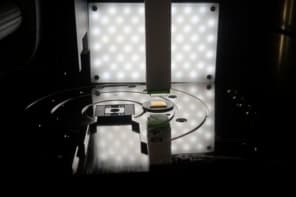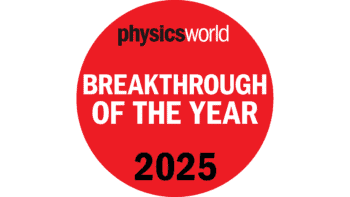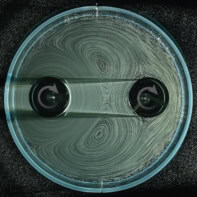
The US physicist Deborah Jin has been awarded this year’s Isaac Newton Medal by the Institute of Physics for her ground-breaking work on ultracold atomic gases. Based at the JILA laboratory in Boulder, Colorado, Jin is honoured by the Institute – which publishes Physics World – for “pioneering the field of quantum-degenerate Fermi gases”. The Newton medal – the Institute’s most prestigious prize – has been awarded annually since 2008.
In 1999 Jin and her then PhD student Brian DeMarco were the first researchers to cool a gas of fermionic atoms so low that the effects of quantum degeneracy could be observed. This phenomenon underpins the properties of electrons in solid materials, and the ability to create and control ultracold “Fermi gases” has since provided important insights into superconductivity and other electronic effects in materials. Working with Cindy Regal and Markus Greiner at JILA, Jin later created the first fermionic condensate in 2003, by cooling a gas of potassium atoms to nanokelvin temperatures.
Outstanding, clever and creative
“Jin is an outstanding, clever, creative scientist,” says Ed Hinds of Imperial College London, who also works with ultracold atoms. “Her incredibly complex experiments have significantly advanced our understanding of the behaviour of electrons in materials.” Jin, 45, becomes the first woman to win the international award, which is given for “outstanding contributions to physics”. She joins John Pendry, Martin Rees, Leo Kadanoff, Edward Witten, Alan Guth and Anton Zeilinger, as the seventh winner of the £1000 prize.
Jin originally studied physics at Princeton University before doing experimental work on superconductors at the University of Chicago for her PhD. She joined JILA in 1995, where she has been a fellow since 2005. Jin, who has previously won a prestigious MacArthur Fellowship “genius grant”, wrote about her work on ultracold Fermi gases in an article in Physics World in April 2002 entitled “A Fermi gas of atoms”, which Institute members can access via MyIOP.
Gold awards
The Institute has also announced the winners of its 2014 Gold Medals. This year’s Dirac Medal goes to Tim Palmer, of the University of Oxford, for his development of weather and climate prediction systems. Giles Davies and Edmund Linfield, of the University of Leeds, share the Faraday Medal for their contributions to the physics of far-infrared and terahertz radiation, while the Glazebrook Medal goes to Gerhard Materlik, of University College London and the Diamond Light Source, for establishing Diamond and his work in X-ray diffraction physics. Finally, Michael Payne, of the University of Cambridge, has bagged the Swan Medal for “the development of computational techniques that have revolutionized materials design and facilitated the industrial application of quantum mechanical simulations”.
A full list of this year’s Institute of Physics award winners is available online.



